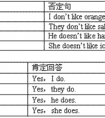句型转换。1.He started to learn the piano when he was five years old.(同义句)He started _____ the piano at _____ _____ _____five. 2.He was first in the compe-八年级英语
第五组
go up 上升,增加;建起
hand down 流传下来,传给,往下传
hand in 交上,递交
hand on 传下来,依次传递
hand out 分发,散发,发给
hand over 交出,移交,让与
hang about 闲荡,徘徊,逗留
hang back 犹豫,踌躇,畏缩
hang on 抓紧不放;继续下去
hang up 挂断 ( 电话 )
have back 要回,收回
have on 穿着,戴着
hold back 踌躇,退缩;阻止,抑制
hold on 继续,握住不放
hold out 维持,支持;坚持,不屈服
hold up 举起,阻挡,使停止;抢劫
第六组
hurry up( 使 ) 赶快,迅速完成
keep back 阻止,阻挡;隐瞒,保留
keep down 控制,压制,镇压;压低
keep off 不接近,避开
keep up 保持,维持;继续,坚持
let down 放下,降低;使失望
let in 让 …… 进入,放 …… 进来
let off 放 ( 烟,烟火 ) ,开 ( 枪 )
let out 放掉,放出,发出
line up 排队,使排成一行
look back 回顾,回头看
look out 留神,注意,提防,警惕
look on 旁观,观看;看待,视作
look up 查阅,查考;寻找 ( 某人 )
look in 顺便看望
make out 辨认,区分;理解,了解
make out of 用 …… 做,从 …… 得出
第七组
make up 构成,拼凑;弥补,赔偿;化装
mix up 混淆,混合,搞糊涂
pass away 去世,逝世
pass off 中止,停止
pass to 转到,讨论,传到
pass out 失去知觉,昏倒
pay back 偿还,回报
pay off 还清 ( 债 )
pay down 即时交付,用现金支付
pay up 全部付清
第八组
pick out 选出,挑出,拣出;辨认,辨别出
pick up 拾起, ( 偶然 ) 得到; ( 车船 ) 中途搭 ( 人 ) ,学会
pull down 拆毁,拉倒;拉下,降低
pull in( 车 ) 停下,进站,船 ( 到岸 )
pull off 脱 ( 帽、衣 )
pull on 穿,戴
pull out 拔出,抽出; ( 车、船 ) 驶出
pull together 齐心协力
pull up( 使 ) 停下
put across 解释清楚,说明
put aside 储存,保留
put away 放好,收好;储存
put down 记下,放下;镇压,平定
put forward 提出
put in 驶进
put on 穿上,戴上;上演;增加 ( 体重 )
put out 熄灭,关 ( 灯 ) ;出版,发布;生产
put right 改正 ( 错误 ) ,整理
第九组
put up 提起,举起,提 ( 价 ) ;为 …… 提供食宿,投宿
ring off 挂断电话
rub out 擦掉,拭去
run down 撞倒,撞沉;追捕,追查
run off 复印,打印
run over 略读,略述;辗过,浏览,匆匆复习
see off 给 …… 送行
see through 看穿,识破;干完,干到底
set back 推迟,延缓,阻碍
set down 卸下,放下,记下,记入
set forth 阐明,陈述
set off 出发,动身;引起,使发生
set out 陈列,显示;动身,起程;制定
set up 创立,建立,树立;资助,扶持
show in 领入
show off 炫耀,卖弄
第十组
show up 使呈现,使醒目
shut out 排除
sit in 列席,旁听
sit up 迟睡,熬夜
speed up 使加速
stand out 突出,显眼
stand up 站起来,耐用
step up 提高,加快,加紧
step in 插入,介入
stick out 伸出,突出;坚持到底,继续
take away 消除;消耗
take down 记下,写下
take off 拿走,脱下;起飞
take on 呈现;接纳,承担,从事
take over 接管,接办
take up 占据;开始;拿起,接收
take up with 和 …… 交往,忍受,采用
初中英语常用介词短语列举:
1)at once 立刻
2)at last 最后
3)at first 起先,首先
4)at the age of… 在……岁时
5)at the end of… 在……之末
6)at the beginning of… 在……之初
7)at the foot of… 在……脚下
8)at the same time 同时
9)at night/noon 在夜里/中午
10)with one's help 在某人的帮助下,由于某人的帮助
11)with the help of … 在……的帮助下
12)with a smile 面带笑容
13)with one's own eyes 亲眼看见
14)after a while 过了一会儿
15)from now on 从现在起
16)from then on 从那时起
17)far example 例如
18)far away from 远离
19)from morning till night 从早到晚
20)by and by 不久
21)by air mail 寄航空邮件
22)by bike/air/train/bus 骑自行车/乘飞机/火车/汽车
23)by ordinary mail 寄平信
24)by the way 顺便说
25)by the window 在窗边
26)by the end of… 到……底为止
27)little by little 逐渐地
28)in all 总共
29)in fact 事实上
30)in one's twenties 在某人二十几岁时
31)in a hurry 匆忙
32)in the middle of 在……中间
33)in no time (in a minute) 立刻,很快
34)in time (on time) 及时
35)in public 公众,公开地
36)in order to 为了……
37)in front of 在……前面
38)in the sun 在阳光下
39)in the end 最后,终于
40)in surprise 惊奇地
41)in turn 依次
42)of course 当然
43)a bit (of) 有一点儿
44)a lot of 许多
45)a little 一点儿
46)on one's way to 某人在去……的路上
47)on foot 步行,走路
48)a talk on space 一个关于太空的报告
49)on the other hand 另一方面
50)at/on the weekend 在周末
51)on the left (right) 在左(右)边
52)on the other side of 在……另一边
53)on the radio 通过收音机(无线电广播)
54)to one's joy 使……高兴的是
55)to one's surprise 使……惊讶的是
考点名称:特殊疑问句
- 特殊疑问句:
以特殊疑问词开头,对句中某一成分提问的句子叫特殊疑问句。
常用的疑问词有:what、who、whose、which、when、where、how、why等。
特殊疑问句的基本结构是“疑问词+一般疑问句”。
其回答应当是具体的。特殊疑问句句末一般用降调。
例如:How do I get there?
Why not?
What about the sports news? - 常用疑问词可先分为3种:
疑问代词:
what(什么)
who(谁,作主语)
which(哪个,在一定范围内选择)
whose(谁的,指附属关系)
whom(谁,作宾语)
疑问副词:
when(何时,询问时间)
where(何地,询问地点)
why(为什么,询问原因)
how(如何,询问手段,方式,工具以及程度)
疑问形容词:
what(which,whose)+名词
例词:
what time(什么时候) what colour(什么颜色)... ...
how much(多少) how long(多长)... - 特殊疑问句的特点:
一、 特殊的疑问词:
特殊疑问句要由疑问代词或疑问副词开头,询问的内容不同, 使用的疑问词也不同。
我们学过的疑问词有what(询问事物), how much(询问价格), what time (询问时间,尤其是点钟), what kind of(询问种类), why(询问原因),who(询问人), where(询问地点) 等等。如:
—What is this? 这是什么?
—It's a key. 这是一把钥匙。
—How much is it? 这个多少钱?
—It's twenty dollars. 二十美元。
—What kind of movies do you like? 你喜欢哪一类型的电影?
—I like action movies. 我喜欢动作片。
二、特殊的语序:
特殊疑问句由疑问词开头,其构成是“疑问词 + 一般疑问句”。如:
What time is it? 现在几点钟?
Who is your teacher? 谁是你的老师?
特殊疑问句有两种语序:
1.如疑问词作主语或主语的定语,即对主语或主语的定语提问,其语序是陈述句的语序:
Who is singing in the room﹖
whose bike is broken﹖
2.如疑问词作其他成分,即对其他成分提问,其语序是:
特殊疑问词+一般疑问句(特殊疑问词+be/助动词/情态动词+主语+谓语)
What does she like?
What class are you in﹖
Where are you from﹖
What time does he get up every morning﹖
- 最新内容
- 相关内容
- 网友推荐
- 图文推荐
| [家长教育] 孩子为什么会和父母感情疏离? (2019-07-14) |
| [教师分享] 给远方姐姐的一封信 (2018-11-07) |
| [教师分享] 伸缩门 (2018-11-07) |
| [教师分享] 回家乡 (2018-11-07) |
| [教师分享] 是风味也是人间 (2018-11-07) |
| [教师分享] 一句格言的启示 (2018-11-07) |
| [教师分享] 无规矩不成方圆 (2018-11-07) |
| [教师分享] 第十届全国教育名家论坛有感(二) (2018-11-07) |
| [教师分享] 贪玩的小狗 (2018-11-07) |
| [教师分享] 未命名文章 (2018-11-07) |

![Which of the following can you probably see in the meeting room? [ ]A. B. C.D. -七年级英语](http://www.00-edu.com/d/file/ks/4/2/dongmingci/2020-01-08/small97361980a56115e1c9237567439904fe1578422951.jpg)

![—Can the boy finish_____ the book in about a week? —I think he can. [ ]A. read B. reading C. to read D. reads -八年级英语](http://www.00-edu.com/d/file/ks/4/2/dongmingci/2020-01-08/smallfa4d713075e249356362fe7392193a301578421751.png)


